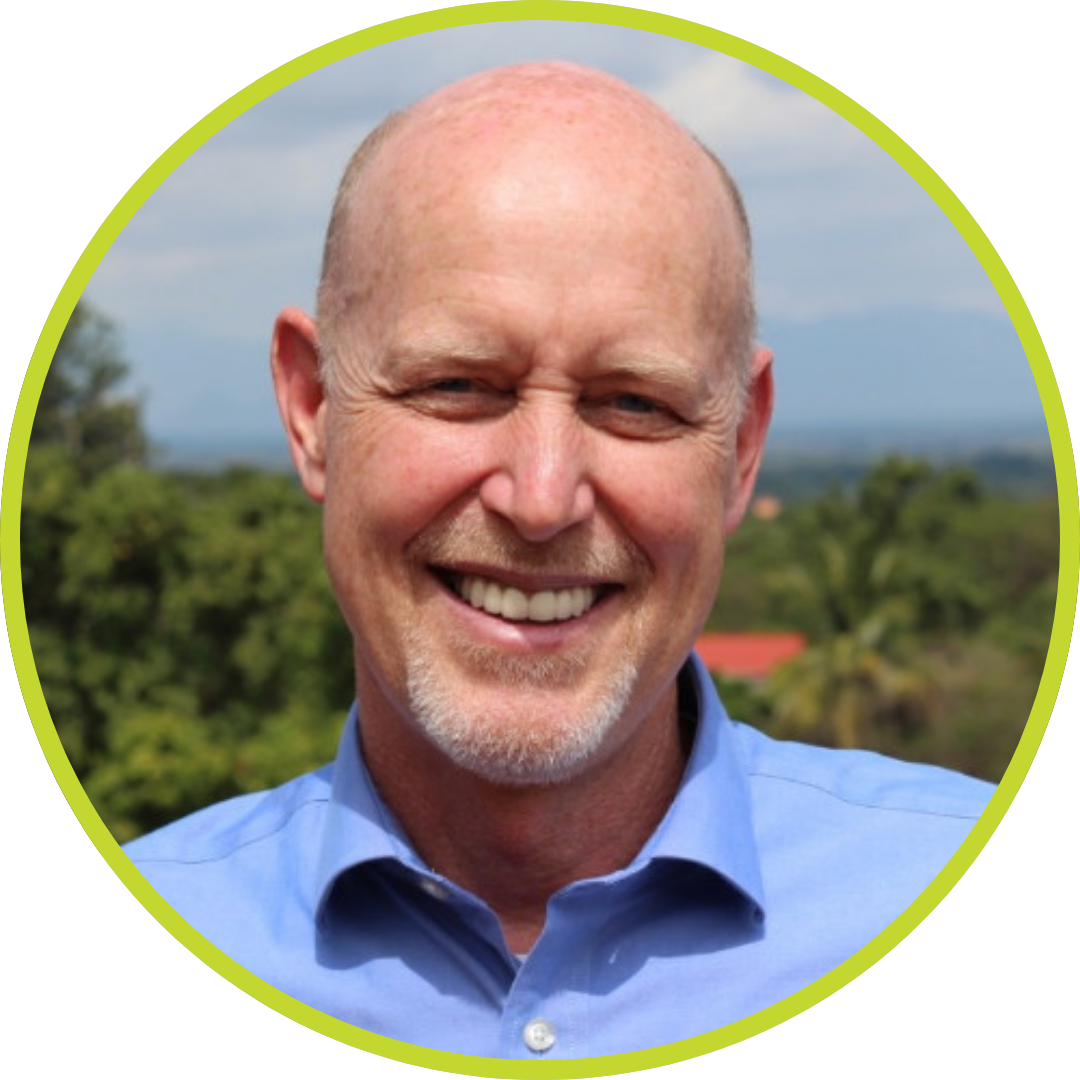
0830 - 0900
Registration
0900 - 0910
Opening Icebreaker
Roshan Thiran, Founder, Leaderonomics
0910 - 0915
Emcee Opening
0915 - 0920
Welcome Remarks: Chairman of TBN Malaysia
Dato’ Eric Ku, Chairman, TBN Malaysia
0920 - 0930
Opening Address:
Why Social Values is Gold
While economic values like profit, efficiency, and productivity are undeniably powerful drivers in society, social values shape the fabric of our communities, and form the invisible thread called social cohesion that holds society together. Without social cohesion forming the stable foundation, economic gains and even powerful tools like AI will not be able to thrive. Because ultimately, social values is who we are, not what we are. And humanity is at the core of who we are.
Gary Hopwood, Chairman, TBN Americas
0930 - 0950
Keynote Address:
Education and Social Entrepreneurship – The Bridge to A Beacon of Hope
Social entrepreneurship is a dynamic field that's rapidly evolving, changing not only the educational landscape, but also the aspirations and hope of our young people. While educational institutions have started to include social entrepreneurship in their offerings, it is not only about teaching it, but also helping students to adopt a social entrepreneurial mindset - to teach values, and not just programs. To prepare and inspire students to start ventures that make the world more just and equal; that they do not just have a job, but they have a mission. To help students view marginalization and poverty through systematic frameworks, encourage divergent thinking, design interventions, and create enduring social impact that changes lives. Education has always been crucibles of change and the cornerstone of human progress - bridging society to a beacon of hope. The building blocks start in the classroom.
Dr. Melati Nungsari, Deputy CEO, Asia School of Business
0950 - 1040
Fireside Chat:
When Social Enterprise was a Dirty Word
Capitalism and charity have been in a partnership for a long time. One makes the money, and the other then gives it away. However, with the widening of income inequality, and the increase in poverty, perhaps this status quo only helps the symptoms, but doesn't get to the root of the problem? The social enterprise model integrates generating revenue and fulfilling a social mission into an operative whole, as opposed to separate silos. As the popular saying goes, doing well while doing good. But a model that's too good to be true faced resistance against an infrastructure that was not ready to accept it. Today, as social enterprises continue to rise - as all good things do, it is no longer a "dirty" word, and increasingly the model of tomorrow. The beauty of innovation intersecting with compassion is brilliant, not dirty.
Professor Dato’ Elizabeth Lee, Chief Executive Officer, Sunway Education Group
Leon Toh, Chairman, Damson Capital
Moderator:
Rosemary Tan, Director of Operations, Tungling Group
1040 - 1100
Morning tea break
1100 - 1200
1st Plenary:
A New Business Model: from Distributive to Generative
Moving from a distributive to a generative business model involves shifting from a focus on profit and distributing it to a select few, to a model that creates and shares value to broader stakeholders. It requires a fundamental shift in how businesses are designed and operated, focusing on the creation of positive social and environmental impact. This shift often aligns with regenerative economics, where businesses aim to regenerate the natural and social systems they operate within - instead of reduce and recycle, it actively contributes to the renewal and restoration of ecosystems.
Brian Koh, Director, NUS Enterprise
Edwin Lee, Chief Executive Officer, Covenant Capital Pte Ltd
Isaac Lee, Group GM, Bunga Group
Ivy Wong Abdullah, CEO Malaysia, Permian Global
Moderator:
Daniel Long, CEO, Olive Tree Estates
1200 -1220
Inspire Me 1:
The New Emerging Capital Market for Social Enterprises
As social enterprises disrupt the way business is done, funding models have not kept up, leaving them with a major disadvantage in raising capital. The current internal infrastructure and external policy environment is structured in a way that prevents funders from giving them the capital. And this is despite the fact that the social enterprise offers more innovative solutions to solving problems. So ultimately, nobody wins. Some newer financial mechanisms have developed to meet the unique needs of social enterprise, ie: impact investing, social stock exchanges, impact loans. However, a broader change is needed. While commercial investors should redefine what makes up a "return", philanthropists should consider sustainability, seed funding, and even evolving their roles to equity holders.
Chik Wai Chiew Founder, Skysurfer Consulting & Founding IC Chairman of Asia Impact First Fund
1220 - 1240
Impact Investing and Social Entrepreneurship - Solving the World’s Problems through Creative Business Models and Purpose-driven Investments
The rise of social entrepreneurship and the growth of impact investing are closely intertwined. At this intersection is a new dynamic that's driven first by values, before impact and profit. If the values are not aligned, It will be like trying to fit a round peg into a square hole, with the tension sometimes resulting in impact washing, and a perennial question on financial returns. When values are aligned, this is the sweet spot for authentic impact that's measured in both financial and social returns.
Dato Dr Kim Tan, Founder, TBN
1240 - 1400
Lunch
1400 - 1500
2nd Plenary:
When Corporations and Social Enterprises Collaborate, they can Change the World
Corporations and social enterprises both have value that they can offer each other in mutually beneficial ways. Social enterprises can offer corporations a pathway to adressing critical global challenges, social innovation, and creating meaningful impact. Corporations can offer social enterprises access to markets, networks, and funding. Importantly, both must be equal partners in this relationship. Additionally, by making purpose-driven choices through social procurement, businesses can align their sustainability goals, and develop more robust supply chains. Together, these collaborations can build resilient and stronger communities, and pedal towards a more sustainable future - reshaping the way business is done, and changing the world in the process.
Ali Shabbar, Founder & CEO, DeafTawk
Caroline Liew, Executive Director, Wealth Management, Schroders
Dickson Lim, Head of TT Foundation Advisors, Temasek Trust
Rashvin Pal Singh, Group CEO, Biji-biji Initiative & Mereka
Moderator:
Redza Shahid, Asst. Director at Innovation & Entrepreneurship Centre, ASB
1500 - 1600
BREAKOUTS
Breakout 1: Green Entrepreneurship and Stewardship
Green entrepreneurship offers a pathway to harmonize economic growth and environmental stewardship. This workshop will present Life Cycle Assessment (LCA) - a unique and powerful, data-driven tool that helps businesses measure and reduce their footprint across every stage of a product's life, from raw materials to end-of-life disposal.
Christina Lee, Founder & CEO, Global Green Connect & Global Green Economic Foundation
Syafirul Ariff Selimin, Sustainability Consultant, Global Green Connect
Breakout 2: Building AI workflows Without Coding Skills
This is a prompt mastery and flows logic workshop to empower attendees to be able to build AI workflows without needing coding skills. This is a good step forward in making AI more accessible and applicable for everyone, and for the everyday person.
Isaac Munandar, Co-Founder & CEO, Maxy Academy
Andy Toro, Co-Founder & CTO, Maxy Academy
Breakout 3: Mental Health Innovation - Scalable Solutions for an Invisible Crisis
This workshop explores how social enterprises are rethinking mental health support - making it more inclusive, digital and community-driven. Through a multi-language app combining therapy access, peer support, and gamified wellness tools, this session delves into the intersection of technology, behavioral science, and social impact. The session will spark new ways to address one of today's most pressing, and often invisible, social challenge.
Join us as we unpack:
1. How digital tools are reshaping mental health access
2. How to design for vulnerable youth populations
3. The role of corporate and institutional partners in scaling support
Madiha (Maddy) Fuad, Founder & CEO, PlusVibes
1600 - 1620
Afternoon tea break
1620 - 1640
Inspire Me 2:
Character-Based Finance - Because It Matters
We have always vetted the potential of an investee (and/or beneficiary) based almost entirely on their numbers - term sheets, balance sheets, P&L, projected returns. Given the number of high-profile failures in recent times, ie: eFishery, Theranos, WeWork, FTX, FashionValet, etc., do financial numbers alone tell us everything we need to know? We've clearly seen that financials can be manipulated and/or mismanaged. An organisation is only as good as its leader. So when a leader lacks moral integrity, or character, the financial numbers can only tell us so much of the story. Our due diligence should also include the assessment of the Founder's character and reputation alongside financial history. This holistic approach will provide better insights for better decision-making. Ultimately, because it matters.
Josh Yates, Vice President for Strategy & Innovation, Belmont Innovation Labs
1640 - 1740
3rd Plenary:
Social Finance and Solidarity - Equity for All
Being excluded is not fun. Traditional financial systems have excluded 1.4 billion adults, who are often poorer, less educated, live in rural areas, or micropreneurs. To refine it further, there are also the underbanked that often tend to be overlooked. For example, in Singapore, while only 2% of the population are unbanked, 38% are underbanked. This reinforces the belief that financial institutions were created to serve the rich. At its heart, the mission of social finance is greater financial inclusion, driven by values like equity and social justice; prioritizing the collective good over individual profit. Democratizing the financial systems has been made possible through fintech innovations like digital platforms and mobile banking. Wealth creation is an opportunity that should be available to all, even those with no capital. Because when we all win, we all win.
Angela Soon, Associate Director, Braxton Capital
Hafizuddin Sulaiman, Officer in Charge & Chief Financial Officer, UEM Sunrise
Tom Dawkins, Co-Founder & Chief Impact Officer, LendForGood
Umar Munshi, Founder, Ethis Malaysia, & Managing Partner, HASAN VC
Moderator:
Dr. Melissa Foo, CEO, MYImpact
1740 - 1755
Closing Address:
VC at the Intersection of Impact Investing
As impact investments increase in popularity, the traditional VC model is now being challenged. VC frameworks can intersect meaningfully with the goals of impact investing, by bridging the discipline and scalability of the VC framework with the mission and measurable outcomes of impact investing. One of the loudest complaints about impact investing is that it lacks scalability and sustainability. By applying some of the rigor of the VC framework to impact investing, and by embracing models that avoid the pitfalls of short-termism, we can build something that's scalable and sustainable. In the business world, this is called "best practice".
Ng Sai Kit, Chairman, Malaysia Venture Capital and Private Equity Association (MVCA)
1755 - 1800
Closing
1800 - 1830
Exhibition Booths
1830 - 2030
Welcome dinner






























